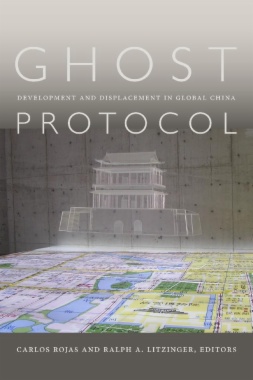Even as China is central to the contemporary global economy, its socialist past continues to shape its capitalist present. This volume's contributors see contemporary China as haunted by the promises of capitalism, the institutional legacy of the Maoist regime, and the spirit of Marxist resistance. China's development does not result from historical imperatives or deliberate economic strategies, but from the effects of discrete practices the contributors call protocols, which stem from an overlapping mix of socialist and capitalist institutional strategies, political procedures, legal regulations, religious rituals, and everyday practices. Analyzing the process of urbanization and the ways marginalized communities and migrant workers are positioned in relation to the transforming social landscape, the contributors show how these protocols constitute the Chinese national imaginary while opening spaces for new emancipatory possibilities. Offering a nuanced theory of contemporary China's hybrid political economy, Ghost Protocol situates China's development at the juncture between the world as experienced and the world as imagined.
Contributors. Yomi Braester, Alexander Des Forges, Kabzung, Rachel Leng, Ralph A. Litzinger, Lisa Rofel, Carlos Rojas, Bryan Tilt, Robin Visser, Biao Xiang, Emily T. Yeh
- Cover
- Contents
- Acknowledgments
- Introduction. “Specters of Marx, Shades of Mao, and the Ghosts of Global Capital”
- Part I. Urbanization
- 1. Traces of the Future: Beijing’s Politics of Emergence
- 2. The Chinese Eco-City and Suburbanization Planning: Case Studies of Tongzhou, Lingang, and Dujiangyan
- 3. Hegel’s Portfolio: Real Estate and Consciousness in Contemporary Shanghai
- Part II. Structural Reconfigurations
- 4. Dams, Displacement, and the Moral Economy in Southwest China
- 5. Slaughter Renunciation in Tibetan Pastoral Areas: Buddhism, Neoliberalism, and the Ironies of Alternative Development
- 6. “You’ve Got to Rely on Yourself ... and the State!”: A Structural Chasm in the Chinese Political Moral Order
- 7. Queer Reflections and Recursion in Homoerotic Bildungsroman
- Part III. Migration and Shifting Identities
- 8. Temporal-Spatial Migration: Workers in Transnational Supply-Chain Factories
- 9. Regimes of Exclusion and Inclusion: Migrant Labor, Education, and Contested Futurities
- 10. “I Am Great Leap Liu!”: Circuits of Labor, Information, and Identity in Contemporary China
- References
- Contributors
- Index
- A
- B
- C
- D
- E
- F
- G
- H
- I
- J
- K
- L
- M
- N
- O
- P
- Q
- R
- S
- T
- U
- V
- W
- X
- Y
- Z

